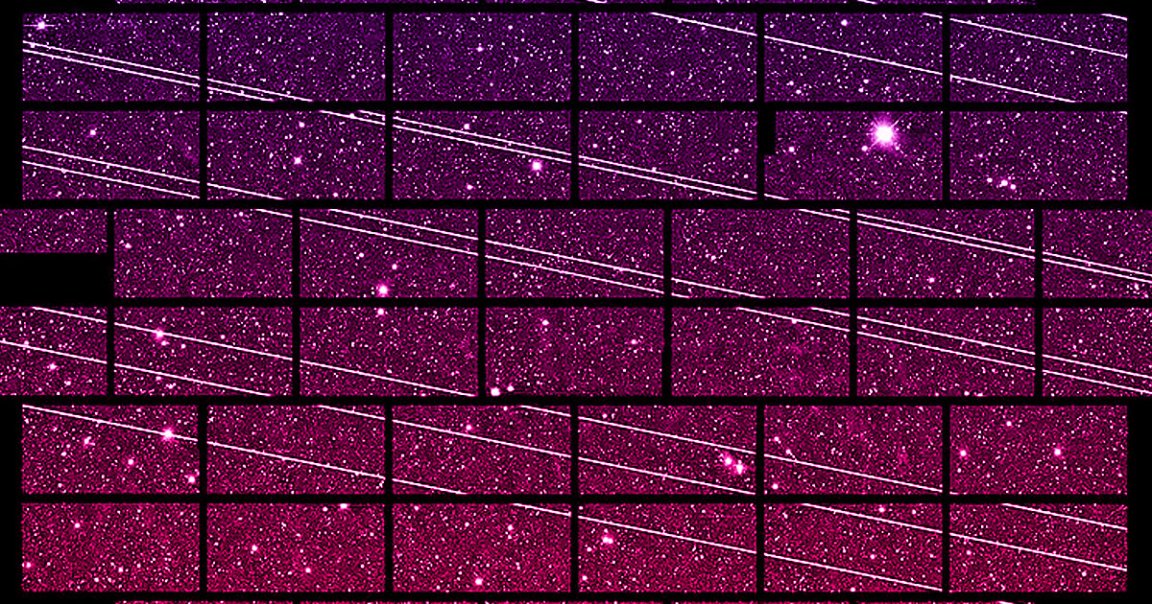
Amazon was approved by the Federal Communications Commission to launch 3,326 satellites as part of its planned Kuiper constellation. That’s roughly 600 more satellites than the total number currently in orbit, as The New York Times reports. But who’s counting?
Astronomers are. And they’re worried. The news comes just a week after SpaceX launched its latest batch of 57 Starlink satellites, bringing the total number up to just shy of 600 already in orbit.
The reflective micro satellites have been photobombing astronomical observations of the night sky ever since they started being launched by SpaceX, appearing as bright streaks of light.
“We don’t yet have any kind of industrywide guidelines,” Michele Bannister, planetary astronomer at the University of Canterbury in New Zealand, told the Times.
“We don’t have an industry body that’s producing good corporate citizenship on the part of all of these enthusiastic companies that want to launch, and we don’t have any regulatory setup in place that’s providing clear guidelines back to the industry,” Bannister added. “To me, honestly, it feels like putting a bunch of planes up and then not having air traffic control.”
Problems are likely to persist as companies like SpaceX and Amazon continue to litter the night sky with thousands, if not tens of thousands, of their satellites.
While SpaceX has tried non-reflective coating and a sunshade to stop reflecting light, a fully effective solution has yet to be demonstrated. An Amazon spokesperson also told the Times that “reflectivity is a key consideration in our design and development process.”
Astronomers, however, are calling for national regulators to step up to the plate and make sure ground-based astronomy can survive this new trend. Whether or not they will — much like a potential clear night sky in the future — remains to be seen.
READ MORE: Amazon Satellites Add to Astronomers’ Worries About the Night Sky [The New York Times]
More on Starlink: SpaceX’s Starlink Satellites Ruined This Photo of the NEOWISE Comet